| АЛФАВИТНЫЙ УКАЗАТЕЛЬ КНИГ |
|
|
|
| АЛФАВИТНЫЙ УКАЗАТЕЛЬ АВТОРОВ |
|
|
|
|
general. It's almost what you have... you can speak of a genetic
backslide in a sense, that is, people don't, they have no will to
work. In fact, when they talk about the period of stagnation, et
cetera, et cetera, et cetera, et cetera, well, in general, the
majority of the population was quite happy with that, because it was
placing on them no demands.
ROBERT MACNEIL: You say Sakharov's on the inside and you're on the
outside. Somebody living in winter all the time he get s a little bit
of a thaw and it's wonderful.
JOSEPH BRODSKY: Yeah, he's grateful for that.
ROBERT MACNEIL: But somebody living in Florida, where there's total
sunshine, anything less than total sunshine is intolerable.
JOSEPH BRODSKY: True.
ROBERT MACNEIL: How has living in this total sunshine here,
spiritually speaking, if that's the word, this spiritual Florida that
you've been living in now since 1970, how has that affected you, do
you think?
JOSEPH BRODSKY: What I'm going to say may sound somewhat peculiar to
you, but I don't think my notions of what's right and what's wrong and
what should be done and shouldn't be done have altered that much. In
that respect, I think all my life I lived in some sort of mental state
of sunshine... that is, well, I don't know... maybe it's my... maybe
it's simply my temperament or whatever it is... I was always to a
certain extent charged by others, by their friends, by their
acquaintances with some absolutist notions. Well, I don't think, I
somehow believe in either or, rather than in gradual, in gradual
improvements. While that system can be improved, the longer it's
intact, no matter what's happening, no matter what kinds of reforms or
changes, no matter what kind of personalities are going to occupy the
top or even middle strata, it's going to have an effect, it's going to
ruin people's lives, it's going to influence people's lives in the
wrong way.
ROBERT MACNEIL: Unless there's a total change you mean.
JOSEPH BRODSKY: Unless it's total change and even the total change...
well, here's the rub, you see, I'm not so sure the total change is
going to be such a blessing. Well, Russia is in a peculiar, it's sort
of a hungry elephant, if you will, an elephant who experiences anger
and who thinks what is it to do, where to go. Well, there are three
options such an animal would have had... first going to the past,
return to the past, well, because there is some sort of security of
the past, et cetera, et cetera, but the past is not a physical
reality. It is only a notion of your mind... or stay in the present,
stay where you are, the status quo, but the longer you stay... well,
first of all, it's the present that makes you feel hungry where
everything is eaten around. Well, the longer you hesitate, the longer
you stay in the same place, well, the deeper your feet sink into the
bog, yeah, so therefore take a step further, but take a step
forward... but the point is that there is no guarantee that there are
green pastures ahead. That's the reason it hesitates. The more it
hesitates, the hungrier it gets and the more it's mired.
ROBERT MACNEIL: Soltenitsyn, another person, Soviet Citizen, ex-Soviet
citizen living in this country, is, despises this spiritual Florida,
the United States, at least to the extent saying it is decadent and
unserious. Do you share those feelings?
JOSEPH BRODSKY: I do not.
ROBERT MACNEIL: You do not?
JOSEPH BRODSKY: Not at all.
ROBERT MACNEIL: Do you... do you... what do you think that it has done
to you... to come back to my question... what has it done to you
living in that?
JOSEPH BRODSKY: I was left alone. That's the, that's the greatest
thing a society can do to an individual, to leave him alone, and in
fact, I knew something about the states prior to my arrival here and
in order to live in a different country, you have to love something
there, you have to love either the spirit of the laws or the economic
opportunities, or the history of the country, the language perhaps,
literature. I happen to love the latter two. Well, but you ought to
have some sentiment. You also have to in my case, there is something
else. I simply loved all my life, loved is too strong a word, but I
had a tremendous sentiment partly conditioned, of course by the
reality of where I grew up, for the spirit of individualism, for the
idea of your being on your own in a big way. So in a sense, in a
sense, when I came here, this is what happened, this is what I found
in a sense. Well, in that respect, in fact, to say what I have found
is again to put my case a bit too strong or dramatically. In a sense,
I or I would say people of my generation, people like me, I'm not
alone, well, we were in a sense more Americans, more American than
Americans themselves. We're individualists from the very threshold.
That's why this country meant so much for us, yeah. It sounded to us
as a place on the earth where the idea of the of individualism has
been physically incarnated in a sense. So in that sense, the country
where I arrived to in 1972 was the biggest, wasn't exactly a surprise
or a shock or that much of a comfort. It was the normal place to be
at.
ROBERT MACNEIL: Joseph Brodsky, thank you for joining us.
JOSEPH BRODSKY: You're welcome.
___
A Poet Remembered: Joseph Brodsky, 1940-1996
by Benjamin Stolz and Michael Makin
from [ii: The Journal of the International Institute], Vol. 4, No. 2 (Winter, 1997)
*Benjamin Stolz and Michael Makin are faculty members in Slavic Languages and Literatures.
On July 9, 1972, Joseph Brodsky came to Ann Arbor
to take up a teaching position at the University of Michigan. He had been deported from the USSR barely a month earlier. This past November, members of the University faculty as well as visiting speakers gathered in Ann Arbor for a Commemorative Conference in his honor. The conference organizers had invited the poet, and he agreed to attend. Joseph Brodsky, however, died at his home in Brooklyn, New York, on January 28, 1996.
Joseph Brodsky was an exceptional man. He dropped out of high school at age 15, and the first degree he received was an honorary doctorate. He was promoted to a tenured professorship at the University without being formally nominated; and after receiving the Nobel Prize in Literature in 1987, he became the first foreign-born citizen to be appointed Poet Laureate of the United States, serving in 1991 and 1992. In this capacity he followed in the footsteps of an American poet whom he revered -- Robert Frost, who taught at Michigan some five decades earlier.
Brodsky arrived in Ann Arbor in 1972 -- at 32, already a highly esteemed Russian poet, though one officially blacklisted by the Brezhnev regime -- to become poet-in-residence at the University. How did he manage to land in Ann Arbor so soon after being forced to leave his native country? What brought him here to the University?
The crucial link between Brodsky and the University was the late Carl R. Proffer, professor of Russian Literature. Proffer and his wife Ellendea were co-founders of Ardis Press, which had published a number of Brodsky's books. He happened to be in Leningrad visiting Brodsky in May, 1972, when the poet received notification from the authorities that he was being issued an exit visa for emigration to Israel. After responding that h was not interested in leaving his native land and culture, Brodsky was warned that the coming winter would be very cold -- a threat that was not lost on a man who had been convicted to "social parasitism" for living independently on his poetry and had served a stretch in exile working on a collective farm in the Russian far north. He decided to discuss the matter with his American friend, and Proffer, in his optimistic way, told Brodsky that he could come and teach in Ann Arbor. Brodsky accepted the idea, and Proffer contacted Benjamin Stolz, who at that time chaired Slavic Languages and Literatures at the University. After receiving authorization to hire Brodsky, Stolz obtained an immigration visa personally approved by Secretary of State William Rogers and flew to Chicago to get a federal work permit.
Brodsky began teaching for the first time in his life in September, 1972 -- a daunting assignment for anyone, but especially for a young man who had dropped out of high school at fifteen, even if he was accustomed to declaiming his poetry to large groups of admirers. He asked Stolz how he should teach his courses, one of which was a course in Russian titled "Russian Poetry" and another, in English, titled "World Poetry." Stolz replied, "Joseph, they're your courses, teach them the way you want to, you're the expert" -- a piece of advice that Brodsky did not need but never forgot. Brodsky was an inspiring and unorthodox teacher, who combined significant demands of his students -- he insisted that a person who was serious about poetry must know at least 1,000 lines by heart -- with a sense of the absurd. He was known, upon listening intently to a long theoretical exposition from a graduate student, to respond with a concise "meow." His presence at the university offered the chance, in the words of a former student, "to experience the dynamics of the poet's perspective and his relationship to language."
Brodsky remained on the Slavic department staff until 1981, though he frequently visited at other colleges and universities during the 1970s. During this time, he rose from lecturer to tenured professor (the latter rank was bestowed upon him by LS&A Dean Billy Frye, without the bother of a formal recommendation or review, following Brodsky's election to the American Academy of Arts and Sciences). In 1981 he left the University and began to split his time between New York City and Mount Holyoke College in Massachusetts.
During his time at the University, Brodsky gave a number of poetry readings to large audiences. In March, 1984, he returned to take part in a panel discussion featuring emigre Russian writers and artists including Mikhail Baryshnikov, who gathered to honor Carl Proffer, by that time fatally ill. He gave another poetry reading here in December, 1988, when he received an honorary doctorate and delivered the commencement address (published in his volume of essays [On Grief and Reason] as "At the Stadium.") His last poetry reading in Ann Arbor was in October, 1992, when he attended the Slavic Department's fortieth anniversary reunion. The Commemorative Conference in honor of Joseph Brodsky took place on November 7-9, under the collaborative sponsorship of Slavic Languages and Literatures and the Special Collections Library of the Graduate Library, and with funding from several University sources and a leadership grant from Irwin T. Holtzman. Concurrent with the conference was an exhibition of materials about Brodsky's life and work from the private collection of Irwin T. and Shirley Holtzman, at the Special Collections Library.
Brodsky's poetry
During the second half of this century, Joseph Brodsky was the most remarkable poet in Russia, a culture rich with poetic talent and achievement. But perhaps he was even more remarkable for transcending that very culture at a time when it had, largely through both accident and design of totalitarianism, become more introverted than ever before. While most of Brodsky's generation devoted itself to the meticulous archaeology of recovering the literature that thrived first before and then in defiance of Stalinism, Brodsky combined that project with an international eclecticism which was part of a sophisticated literary world view long before he found himself beyond the boundaries of his motherland. His poetry precisely articulated the point of view of the educated [homo sovieticus], whose savage irony was the last bastion against despair, while equally brilliantly presenting original discoveries in language, imagery and wit of a master poet. Manipulating the classical forms of Russian verse, and their multiple connotations, Brodsky mixed high and low registers to create a stylistic dissonance which was all the more powerful when contained within familiar verse forms. His penchant for the witty aphorism and for the radical deflation of cultural cliches has given the Russian language many memorable lines.
Brodsky's poetic [oeuvre] is large and extraordinarily diverse -- indeed, he was a poet of staggering energy. Abroad he applied that energy to the creation of an even greater literary self (one critic has called him an "intellectual conquistador"). In the U.S. he became a brilliant essayist, often writing separate and markedly different versions of the same essay in Russian and English. And quite unlike almost all of his contemporaries in Russian literature (wherever they might reside), he was constantly delighting in new literary territories, well beyond the boundaries of his native language and culture. He even wrote original and often very successful poetry in the language of his host country, and many of his autotranslations convey superbly the unique flavor of his Russian verse. Although for many years his poetry could reach Russia only by underground and illegal means, his influence was such that it has been said that no one could write in a style or genre approaching his manner or on his favorite topics without being derivative. In particular, his restatement of the myth and idea of his native city, St. Petersburg, has had enormous power, and has located Brodsky unambiguously among that city's literary greats, from Pushkin to Mandelstam.
___
The Late Joseph B.
Joseph Brodsky had been living in New York
for almost twenty years when he died on January 28 in his Brooklyn apartment. Celebrated almost unanimously as Russia's finest living poet, Brodsky still managed to occasionally rankle his peers. His bluntness, love of form, and flights of pessimism about human nature caused some of his colleagues, both American and Russian, to allege formalism, and even worse, misanthropy. Those who knew Brodsky, however, remember a man with a wicked sense of humour, a love of conversation, and a sterling bullshit detector. We asked three New Yorkers to share a reminiscence or a story. [Törnfallet], composed in English, will appear in [So Forth], a collection of poems forthcoming from Farrar, Strauss, and Giroux.
After Perestroika, the amount of poems and letters Brodsky received from Russia increased exponentially. On several occasions, he asked me to help him wade through the correspondence and write replies. He conscienciously read the reams of poetry sent to him and always tried to find something promising, hoping to offer a few kind words to the author. Often this was not easy.
Once he received several handwritten poems from a young man who had recently emigrated to Israel from Russia. The poems were poor. As usual in such a case, I wrote a standard reply and, expressing gratitude in Brodsky's name, signed the letter.
About a month later, when I came to Brodsky's apartment for another "letter night," Joseph, with a wry smile, told me that a letter had arrived for me. Indeed, the envelope had my name on it. Inside, in familiar handwriting, the young poet had printed "STICK THIS UP YOUR ASS!" in large letters. Joseph watched my reaction; I shrugged. At that moment, I think we shared the same thought: this was the young man's finest line.
--Aleksandr Sumerkin
I made a short film about Joseph Brodsky about three years ago. I was deliriously happy. After a final shoot at The Russian Samovar, a restaurant in New York, we parted warmly and even made a photo of the two of us. I ran into him a year later--he was introducing poet Aleksandr Kushner at the Oscar club. I smiled at him as I would at an old friend and said hello first-- even though I am much older. He barely nodded. "He doesn't remember me," I thought-- "he knows all those poems by heart so he probably can't remember faces." I walked up to him a minute later: "Iosif Aleksandrovich, you probably don't remember me, I made a film about you last year." "I remember you," he replied, coldly. "So what?"
I walked away, scratching my head. "Really," I thought, "so what?"
--Aaron Kanevsky
By sheer coincidence I live in an apartment on New York's Morton Street, located directly above JB's place and owned by his close friend. Joseph's cat Mississippi lives here, exiled upstairs for familial/allergic reasons. The place consists of a bedroom, a dining room, and an alcove with a bay window and a desk, where JB often wrote in his friend's absence.
It was about two weeks after JB's death; I went to sleep, leaving the cat in the dining room.
The following morning I woke up and followed a trail of white feathers to the alcove. A white pigeon sat on the desk, cooing.
I let the bird out, thinking it must have flown in through the chimney, as all the doors and the windows were closed. Indeed, I found a few white feathers near the fireplace.
The previous evening I had been reading a young poet's manuscript; before going to bed, I left it open on the desk. Later that morning, I noticed that the pigeon had left dirty footprints all over its white pages and even festooned it with a dropping.
Of course the theory that the pigeon flew in through the chimney is more probable than supposing that it materialized out of thin air. However, there is another storey between the fireplace and the roof, the chimney is very narrow, and nothing of the kind had ever happened since the house was built.
To those who doubt my story I should say that I am definitely not inclined to mythologize. A smart and sober friend of JB, having heard my story, declared: "We know nothing." I can't think of any other words I could say with such certainty.
--HH
*Original at www.moscowchannel.com/brodsky.html
___
Joseph Brodsky answers Argotist's questions
Shortly before his recent death, the Nobel Laureate Joseph Brodsky spoke briefly to The Argotist
about poetry, memory and exile...
A.: [You comment on the value of "estrangement"to developing first an
individual perspective and second a writer's perspective. Is the one a
necessary prerequisite of the other and how much are you using
Shklovsky's concept of "estrangement", if at all?]
J. B.: The former is surely necessary for the latter, and the other way
round I am afraid is also. Hence the answer to your Shklovsky
question.
["Appearances are all there is" (Less Than One). David Hockney has said
Страницы: 1 2 3 4 5 6 7 8 9 10 11 12 13 14 15 16 17 18 19 20 21 22 23 24 25 26 27 28 29 30 31 32 33 34 35 36 37 38 39 40 41 42 43 44 45 46 47 48 49 50 51 52 53 54 55 56 57 58 59 60 61 62 63 64 65 66 67 68 69 70 71 72 73 74 75 76 77 78 79 80 81 82 83 84 85 86 87 88 89 90 91 92 93 94 95 [ 96 ] 97 98 99 100 101 102 103 104 105 106 107 108 109 110 111 112 113 114 115 116 117 118 119 120 121 122 123 124 125 126 127 128 129 130 131 132 133 134 135 136 137 138 139 140 141 142 143 144 145 146 147 148 149 150 151 152 153 154 155 156 157 158 159 160 161 162 163 164 165 166 167 168 169 170 171 172 173 174 175 176 177 178 179 180 181 182 183 184 185 186 187 188 189 190 191 192 193 194 195 196 197 198 199 200 201 202 203 204 205 206 207 208 209 210 211 212 213 214 215 216 217 218 219 220 221 222 223 224 225 226 227 228 229 230 231 232 233 234 235 236 237 238 239 240 241 242 243 244 245 246 247 248 249 250 251 252 253 254 255 256 257 258 259 260 261 262 263 264 265 266 267 268 269 270 271 272 273 274 275 276 277 278 279 280 281 282
|
|


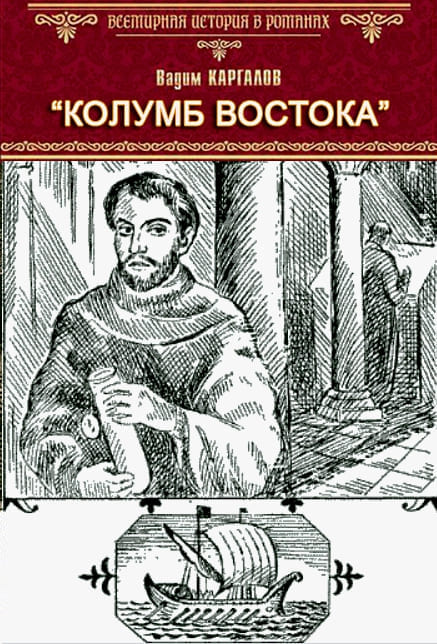
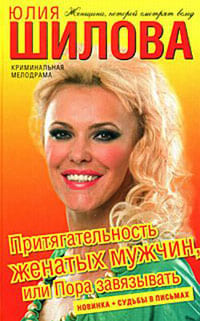
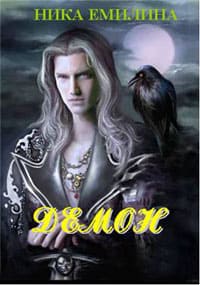
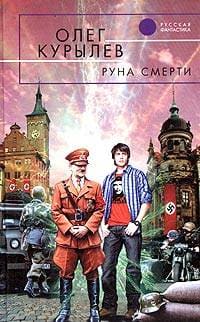
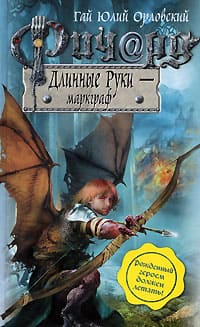 Орловский Гай Юлий
Орловский Гай Юлий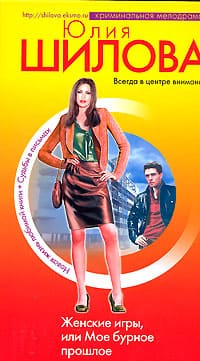 Шилова Юлия
Шилова Юлия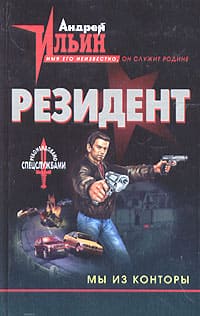 Ильин Андрей
Ильин Андрей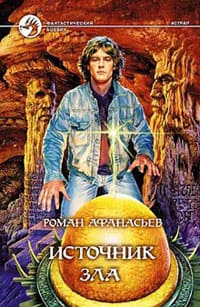 Афанасьев Роман
Афанасьев Роман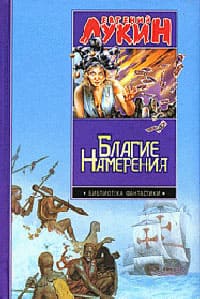 Лукин Евгений
Лукин Евгений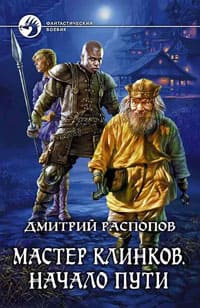 Распопов Дмитрий
Распопов Дмитрий